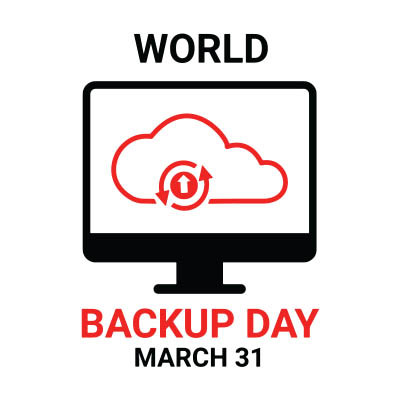In our pockets, purses, and palms, smartphones have become extensions of ourselves; the ultimate personal technology. We use our phones for communication, entertainment, and countless daily tasks. The problem is, the price of these new phones are going up and up and we aren’t really seeing all that much new value out of them. It lends you to ask the question whether or not we are truly getting the most value out of these powerful devices? It also lends us to ask what more can manufacturers do to deliver value that’s worth the price that today’s flagship devices command.
Heart of Texas Network Consultants Blog
Many—we’d go so far as to say most, at some times—businesses have a pretty concrete view of the role that their IT plays in operations: cost center, money pit, necessary evil.
Something we’ve realized, however, is that these impressions are simply warning signs that a business’ technology strategy and approach need some attention. Let’s identify three signs that might be all too familiar to you, and address what can be done to change course and help turn your IT into a contributing part of your overall productivity.
Small businesses today generate a lot of data. From customer details and sales records to inventory tracking and employee schedules, you need to be able to structure this data so that you can use it effectively. Keeping that data organized and accessible is important, but managing it effectively can often be a hassle. This is where smart database management comes in. When done right, it helps businesses run smoother and often save money.
Today is World Backup Day, an annual reminder that losing your data is just one accidental delete, cyberattack, or spilled drink away. The idea is simple: back up your files before disaster strikes. Because trust me, nothing ruins your day faster than realizing all your work, memories, and important files have vanished.
Every business’ worst nightmare is a data loss incident, and if you’re caught unawares, such an incident can set you back financially and operationally for months. Today, we want to cover some of the common data your business collects that you absolutely need to have backed up. If you don’t, you could become subject to serious fines due to regulations and other industry-specific mandates.
Communication is a big part of business. It builds the collaborative space needed to efficiently get work done and provides the platform in which to handle any and all customer concerns. In today’s blog we are going to go through all the things that makes Voice over Internet Protocol (VoIP) one of the most valuable pieces of technology any organization can implement.
Blockchain has increasingly become a technology you hear about, but you may not completely understand how it works. It’s often painted as a controversial technology because the corrupt behaviors of people managing cryptocurrency exchanges have put a negative sheen on the technology. The technology, however, has a wide range of applications across various industries due to its decentralized, secure, and transparent nature. Let’s take a look at a couple of the uses for blockchain.
The conference room for any business is bound to be pretty interesting, and it can tell you all there is to know about a business. This is why it’s especially important to ensure your conference room gives the right impression, especially if you have clients who frequent your office. Let’s go over how you can make your conference room the best it can be!
This goes out to all the business owners, managers, department heads, and other leaders in the workplace who have to field user complaints and issues.
Being in this position can be hard, because you often have to say no. No, we can’t change the timeline or increase the budget for this project. No, we can’t do XYZ that way because it would break compliance. No, we can’t get new hardware/software in until we get it approved in the budget. Repeat ad nauseam.
Our blog last week covered how patience is an important part of the most successful and productive employees’ arsenal. This week, we want to cover how you can help your employees be more patient. If you know someone in your office who could take things down a notch, this is just the blog for you with four suggestions that might do the trick.
No matter how big your business is, you’ll always have technology expenses. It’s just a fact of the current workplace, and your profits will be inexorably tied to how well your IT works for you. Furthermore, the more IT costs rise, the more impact small and medium-sized businesses will feel from them. Today, we wanted to address this issue and how you can minimize the frustrations that stem from seemingly uncontrollable technology costs.
It is undeniable that businesses have increasingly been relying on technology. The past year has been especially digital as millions of people were working remotely. Many of these people required some type of technology support. Today, we are going to discuss how companies like ours were able to provide comprehensive IT support to so many people while they worked from home.
We’re getting close to the end of 2020. Finally? Has it been a long year for you? Has it gone by really fast? I think every other day I have a different opinion about it.
Either way, it’s time to look at 2021. A fresh start, a clean slate. I think if there is one big mindset all business owners and C-levels need to take into consideration for 2021, it’s their people.
Many workplaces have started the processes necessary to safely return their employees to typical operations. However, this is going to involve no small amount of preparation in terms of your business’ technology and proactive planning. Let’s consider the different approaches that you could take as you resume operations in a way that helps protect your team while still enabling work to be done.
Consider something for a moment: aside from their size and the resources at their disposal, what makes a small to medium-sized business so different from a large, enterprise-sized one? If you really consider it, there isn’t all that much. This is why many SMBs have turned to managed services… to receive IT support comparable to what the large businesses get.
 American healthcare organizations must store and exchange patient data in ways that comply with the HIPAA law, or else face hefty fines. One mental health service in Alaska recently learned this lesson the hard way after being hit with a $150,000 fine. Is your healthcare organization’s IT infrastructure 100 percent HIPAA compliant?
American healthcare organizations must store and exchange patient data in ways that comply with the HIPAA law, or else face hefty fines. One mental health service in Alaska recently learned this lesson the hard way after being hit with a $150,000 fine. Is your healthcare organization’s IT infrastructure 100 percent HIPAA compliant?
 Everybody knows operating a computer under cooler temperatures increases its performance. This is why some server closets feel like a walk-in refrigerator. One thing about computers that you may not have known is whether or not running a PC at cooler temperatures extends its life. Logically, one would assume yes, however, the research says otherwise.
Everybody knows operating a computer under cooler temperatures increases its performance. This is why some server closets feel like a walk-in refrigerator. One thing about computers that you may not have known is whether or not running a PC at cooler temperatures extends its life. Logically, one would assume yes, however, the research says otherwise.
 Wearable technology is still relatively new. While technologies like Google Glass have found enthusiastic users, in the eyes of the general public, the verdict is still out. The best thing a Google Glass user can do with their favorite new tech is to use it responsibly. Here's some tips on how to be a good AmGlassador!
Wearable technology is still relatively new. While technologies like Google Glass have found enthusiastic users, in the eyes of the general public, the verdict is still out. The best thing a Google Glass user can do with their favorite new tech is to use it responsibly. Here's some tips on how to be a good AmGlassador!



















